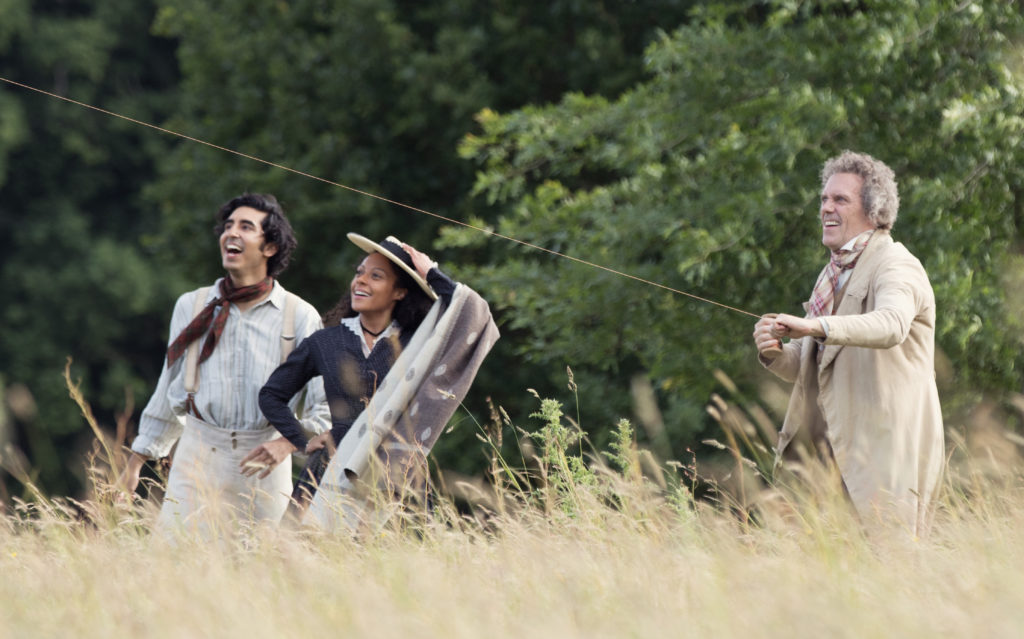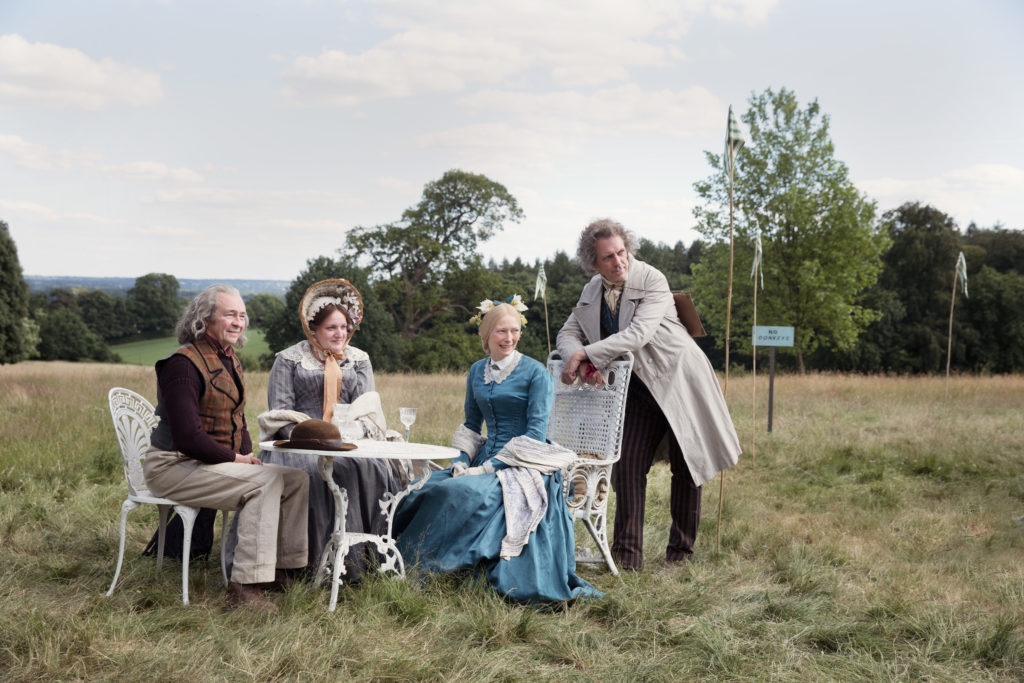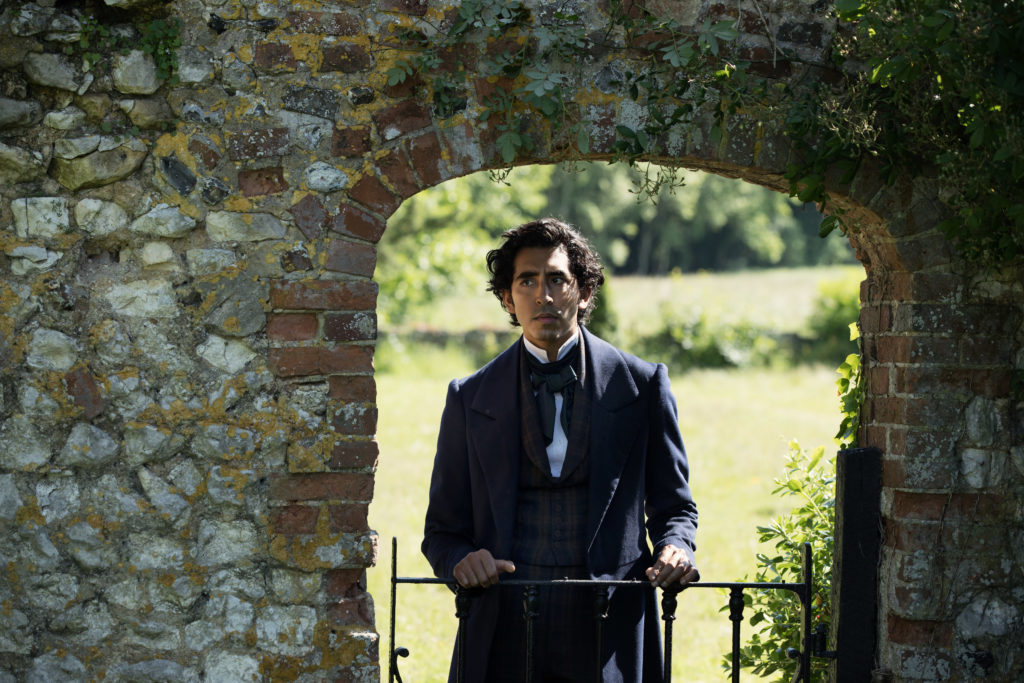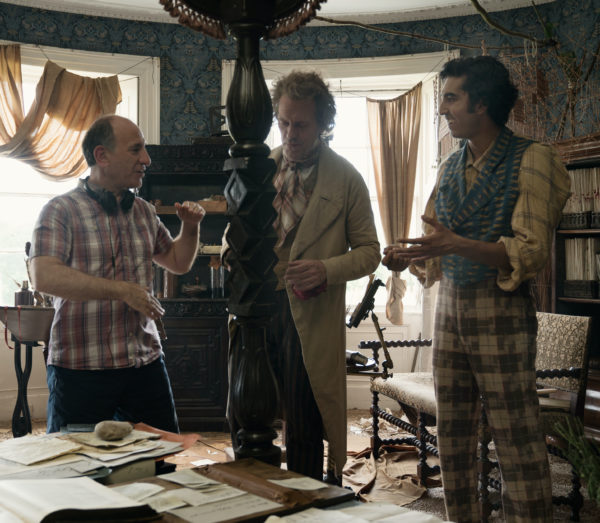Director Armando Iannucci returns to the big screen, following 2017’s The Death of Stalin and 2009’s Oscar-nominated In the Loop, with The Personal History of David Copperfield. The Charles Dickens adaptation—which tells the tale of a young man (Dev Patel) suffering through numerous changes in fortune in 19th-century England—had its debut at the Toronto International Film Festival in September 2019. A U.K. release came in January 2020, and a North American bow was scheduled for May. And then … we don’t need to tell you what happened.
Luckily for fans of witty, colorful costume dramas, The Personal History of David Copperfield is still heading to theaters—this time on August 28, courtesy of Searchlight Pictures. In advance of the film’s foray into newly opened cinemas, Iannucci took the time to speak to Boxoffice Pro.
The following conversation was conducted on June 26. It has been edited for length and clarity.
Before we start, I have to thank you. The Personal History of David Copperfield was the last film I saw on the big screen before everything stopped.
Before the end times.
Yes! It was a really good note to end on. Since then, some films have been going straight to VOD instead of theaters—was that ever a possibility for David Copperfield?
Well, we talked about it. The fundamental issue was that no one knew what was going to happen. Obviously, everyone’s concerned. Uppermost, really, was safety. The May release, perfectly understandably, was deferred. And we just kept talking about dates. I think everyone knew that I, particularly, didn’t want to go into theaters when it still felt too raw and too fresh. The August date stands at the moment, but if things change—film isn’t as important as stopping this pandemic and making sure everyone is safe. I’m pleased that we’ve got a date. But I know that everyone’s going to keep reviewing it and making sure that it’s all safe.
Avenue 5, your sci-fi comedy television series [in which a group of tourists are stranded on a spaceship], finished its first season on HBO in March. What else have you been up to during quarantine?
Fortunately, we’ve been writing season two of Avenue 5. I miss the fun of having everyone in the room and bouncing ideas off each other. We’ve had to do that remotely, and it sort of works, but it just feels a bit odd. Avenue 5 is about lots of people trapped in a situation they can’t get out of, with no real leaders. So it’s a bit painfully close to home. But I’m glad I’ve had something to fill my days with, because I sympathize with anyone who’s just been stuck at home, unable to work. That sense of lack of structure can be quite interesting and useful for a week or so. But by the time you get to week 11, 12, 13, 14, you really want to get out and run about on a windy hill with a kite [a favored activity of The Personal History of David Copperfield’s Mr. Dick, played by Avenue 5 star Hugh Laurie].
Speaking of the timeliness of Avenue 5—I saw David Copperfield twice: once before everything shut down and once well after. In the second viewing, the issues of class conflict that crop up throughout the story had a bigger impact on me.
That’s why I wanted to make the film! I’ve always been a huge Dickens fan. I reread the book about 10 years ago, and I was struck by how absolutely contemporary it felt. It felt so modern. It also had, in Mr. Dick, a really honest and open discussion of mental illness and the burdens it brings. And, yes, wealth and poverty existing side by side in the street. And this kind of—I suppose the modern expression would be status anxiety, imposter syndrome, that whole thing of, do I fit in? Do I belong? Have I made the right friends? What do they think of me? Have I made the right life decisions? The whole book is about a search for identity.
David goes from fortune to fortune and household to household, being given different names by people. He’s trying to work out who he is. And it’s only when he realizes he’s a writer, that he has to write his memory and his experience down, that [he realizes] who he is. So it’s a deeply modern, contemporary book. That was my gut feeling, turning it into a movie. I didn’t want to do a modern version of it. I wanted to set it very much in its time. But I wanted people in the theater to feel that at any point they could just stand up and walk into it and feel a part of it, feel that they connected with the people in the film.

Uriah Heep [a servant who takes advantage of people on his way up the social ladder] is an interesting character. He does awful things, but when he says he doesn’t want to bow and scrape to people just because he happens to have been born into a different class—he’s not wrong.
Yes! And I think it’s right that you feel a little sorry for him. At times, I think David is a little bit unreasonably cruel to him, in order to remain friends with Steerforth [his upper-class friend, played by Aneurin Barnard] and so on. And that’s what I took from reading the book. Dev and I and Ben [Whishaw, who plays Uriah], we discussed that actually [Uriah] is about the same age as David, and they started off with roughly similar circumstances. So it’s almost like he is a mirror image of David. Or he’s what David might have become if he had taken a slightly different path or decided to advance himself a different way. He’s there as a kind of warning to David.
I’ve always been fascinated by heroes and villains who are not a hundred percent heroic or a hundred percent villainous. That ambiguity, that sense of, that could be me. The vulnerability in it. I think that’s far more interesting than a two-dimensional, “this is good and this is bad.” That was very much a conscious decision that we wanted to keep. I think it becomes all the more unnerving because of it. [Uriah’s behavior isn’t] a grotesque caricature based on very base, animalistic instinct. There’s a survival instinct that’s gone a little bit the wrong way.
Watching the other characters be cruel to him is really uncomfortable.
That’s what Dickens does in quite a few of his books. The opening lines of this film and the book are, “Whether I turn out to be the hero of this story …” There’s a question mark. And Dickens is very interested in making the hero vulnerable. In Great Expectations, the hero becomes the snob. He looks down on people who have less money than him. Great Expectations was a later novel, but you can see that in David Copperfield.
The childhood scenes in Copperfield are based very much on Dickens’s own childhood. But he kept that quiet. He didn’t tell people it was based on him, because he was ashamed. That sense of trying to hide from other people’s opinions is all there. And therefore, we wanted David to make jokes at the expense of the people who’ve been looking after him. To do impressions of Mr. Wickfield [played by Benedict Wong] for the other people in the school. None of us are perfect, and all of us try and play to the crowd in order to get approval.

Like you said, he has impostor syndrome and he’s trying to fit in.
Dev and I spoke about it when I asked him to be David. He talked about the fact that he came from an immigrant Indian family, but born in Britain. Similarly, I’m from an Italian immigrant family, but born in Britain. In the 19th century, whether you are in or whether you are out is based on wealth and money and class, whereas today, identity’s determined by a host of other things as well. What job you do. Ethnicity. All these questions.
Having a racially diverse cast helps with modernizing the story without straight-up making a modern version.
It wasn’t part of a deliberate—the only person I could think of to play David was Dev. As an actor, as a performer, as a presence, he embodied David Copperfield and all that I want to portray about David: his optimism, his energy, his sense of humor, the pathos. He’s in every scene. He’s the heart of the film. You have to do impressions. You have to do slapstick. You have to do romance. You have to do tragedy. You have to do poverty. Everything. I could only think of Dev. When Dev said yes, a) I was relieved, because I didn’t have a plan B. But I also thought, that’s how I must cast everyone. Find the actor who best contains the spirit of that character, irrespective of what their background is or what acting tradition they’re in. Because in fact, when you analyze it, the whole film is about community and friendship. It’s about loving those who are your friends and being friends with those that you love. People of all sorts of different backgrounds, caring for each other because they’re part of a community.

You’ve done both film and TV. How do you decide which medium fits a particular project? Because, obviously, there have been a ton of limited-series adaptations of Dickens.
[David Copperfield is] actually such a poetic, lyrical book—it’s a book about language and imagination and memory and how memory plays tricks on you and [how] things that you remember, when you revisit them, are actually different. I felt this had to be a film, because I had to have a sense of structure, and you had to experience it as a life being lived. And I think you can only do that in one, continuous viewing rather than in episodic viewing.
And also, I want it to be in the cinemas. It’s a big canvas, a big stage. It has so many speaking parts and so many characters in such a big, colorful world. To me, it always felt like a film. It is also an 800-page book. So the challenge was in coming up with an adaptation that fulfills that criteria of having a beginning, a middle, and an end. And that kind of drive-through narrative, a thematic development that really keeps propelling you forward. So that was the difficult part in terms of the script. And that was about being true to the spirit of the book, but not feeling absolutely over-reverential about the plot. We’ve changed the story lines of various people. We’ve got rid of certain characters. We’ve compressed certain characters into one. This is a film that I want people to come to feeling they don’t have to read the book. They don’t need to know anything about Dickens or the period or anything. I want people to feel fully immersed in this film from start to finish.
You’ve been passionate about the need to help cultural institutions that are in very real trouble right now. I’m wondering how you feel about the exhibition community in the U.K., specifically independent and art house theaters.
One of the reasons I’m pleased that we now have a date in the U.S. is—Searchlight was telling me that a lot of the independent theaters were very keen to have the film as one of their first films on reopening, because they need to get people back in. The larger cinema chains, I think, can cope temporarily with slightly reduced numbers, but the art house theaters need continuous custom.
In the U.K., it’s live theater, live music, live-performance venues that I’m really worried about, because they are going to be the very, very last ones to open up. For sound, scientific reasons. But for that reason, they are the ones that are going to need the support. Because if there’s one thing people have really come to value during this lockdown, it’s the arts. It’s you streaming Netflix, it’s you downloading a movie, it’s you reading a book. It’s that sense of the creative output that we have so long taken for granted. But it’s helped get us through this, and it’s helped sustain us mentally and emotionally. It would be a terrible tragic end to the situation, if when we all open up, the creative industries have died around us. Because they’re what helped get us through our moments of isolation.



Share this post